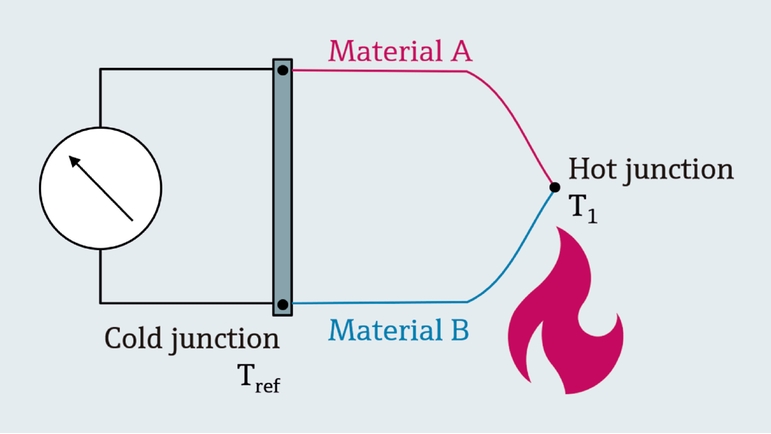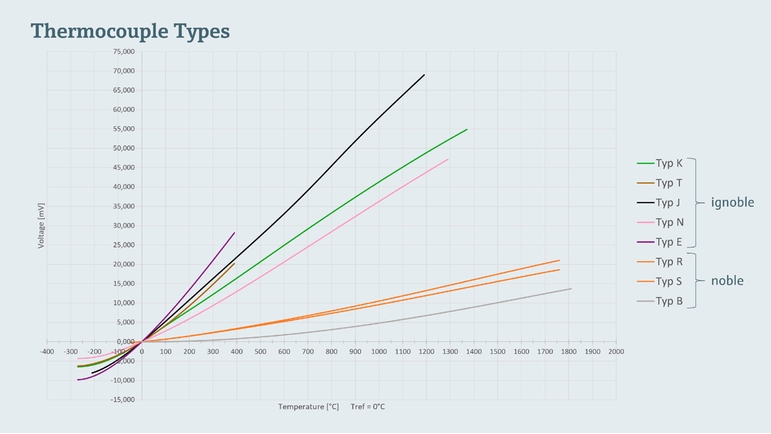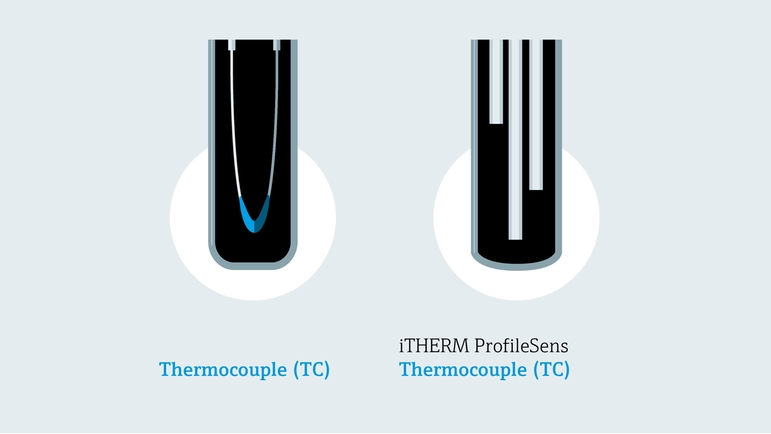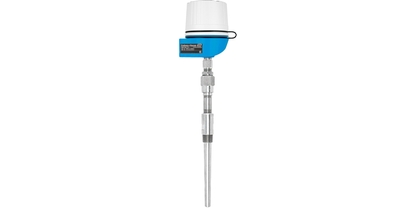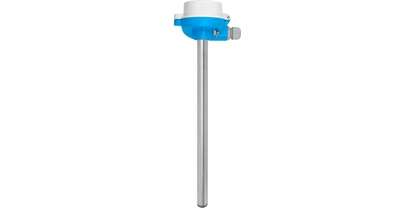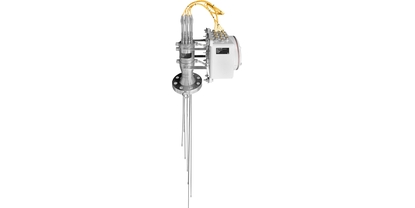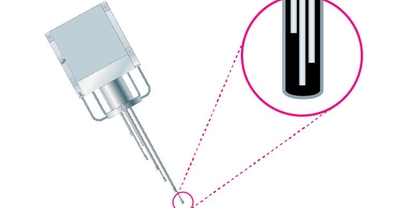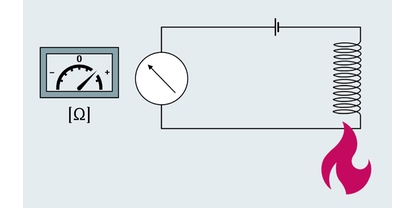TC temperature measurement
What is a thermocouple sensor and how does a thermocouple work?
Two of the most common sensor technologies in temperature measurement devices are resistance temperature detectors (RTDs) and thermocouples (TCs). The technology behind them is different, and each has its own benefits that drive the choice. In a thermocouple sensor, two different metals are joined together at one end. At this junction, changes in the temperature induce a voltage / electromotive force that is measured. TCs are not measuring an absolute temperature, but the temperature difference between the measuring point (T1) and a reference point (Tref).
Benefits
Wide temperature range from -270°C (454°F) to +1820°C (3308°F)
Fast response time, suitable for dynamic temperature measurements
High vibration resistance
Lower cost compared to RTDs
Rugged and durable, especially useful in harsh environments
Temperature sensors with TC technology
Our product finder helps you to search for suitable measuring devices, software or system components via product characteristics. Applicator leads you through an individual product selection via application parameters.
Thermocouple types
The Seebeck effect, which is made use of for TCs, states that a voltage is generated when two dissimilar metals are joined together. The voltage generated can then be measured and converted into temperature readings, using a calibration curve or table. There are different types of thermocouples, based on different wire pairs and measuring ranges. Each type of TC has a unique relationship between the voltage generated and the temperature. The type can be identified by an assigned letter, e.g. TC type K, type J or type T.
RTD vs. TC – a comparison
Their main difference is the temperature range, as an RTD can be used in moderate temperatures ranging from -200°C (300°F) to +850°C (1562°F). The Thermocouple sensor can measure from -270°C (454°F) to +1820°C (3308°F). In general, the choice between a TC and an RTD thermometer depends on the specific requirements of the application.
What are RTDs used for? If you need higher accuracy or are measuring lower temperatures, an RTD may be the right choice. They have a slower response time than thermocouples, but are more accurate over a wider temperature range.
When to use a TC sensor? If you need to measure high temperatures, have a limited budget, or need a fast-responding thermometer, a thermocouple may be the perfect choice. Another advantage of TCs is that they can withstand harsher environments (corrosive material, vibration etc.).
Endress+Hauser has developed a unique sensor called iTHERM ProfileSens for high temperatures, pressures and aggressive media, consisting of a robust double metal sheathed MI cable and temperature profiling with up to four TCs in one cable.
-
Standard products
- Reliable, robust and low-maintenance
Technical excellence
Simplicity
-
Specialized products
- Designed for demanding applications
Technical excellence
Simplicity
Variable
| FLEX selections | Technical excellence | Simplicity |
|---|---|---|
Fundamental selection Meet your basic measurement needs |
Technical excellence
|
Simplicity
|
Lean selection Handle your core processes easily |
Technical excellence
|
Simplicity
|
Extended selection Optimize your processes with innovative technologies |
Technical excellence
|
Simplicity
|
Xpert selection Master your most challenging applications |
Technical excellence
|
Simplicity
Variable |
Downloads
-
Temperature measurement for the process industry
Temperature Measurement - Thermometers and transmitters for the process industry
File size:
File name:
-
Endress+Hauser temperature sensor technologies
File size:
557.3 KB
File name:
Sensortechnologie_Thermometer_EN.pdf

